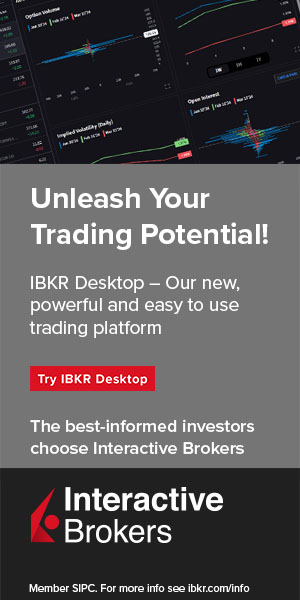We often hear people comparing the stock market with sports betting and claiming that the two concepts are essentially the same. In such circumstances, we can’t help but ask ourselves: How investing and gambling differ?

It takes a serious analysis to understand how both features really function and identify their differences and similarities, so get ready for an all-around approach with lots of useful data and insights. Here we go!
A Brief History of Sports Betting
Before we delve deeper into the subject, it is necessary to describe the basics of sports betting and explain why it has become so gigantic. After all, we are now comparing it with stock exchanges and you deserve to know why.
Bookmaking has been around for decades, but it used to be illegal in most countries. Local authorities considered sports betting to be a socially corrupt activity and they did not want to give it a green light.
However, things started changing in the late 1980s and early 1990s. The reason is simple – professional sports leagues have become so popular and interesting that their markets expanded big time, while new technologies such as the Internet only made things easier for bookies.
Ever since then, sportsbooks have been looking for new and alternative ways to attract bettors, including tricks like live betting and other cutting-edge gambling solutions. Today, you can even find instructions such as the guide to West Virginia online sports betting and learn quickly all there is to know about local gambling rules and regulations.
State authorities responded quickly to the new trend by adopting new regulations and legalizing sports betting. Somewhere around the year 2000, bookmaking has become more or less legal in every part of the world.
Global Markets Behave Similarly
Stock exchanges represent a global market with stakeholders, analysts, and contributors from all over the globe. This basically means that your investments and predictions are not directed against one central authority or regulator. On the contrary, you are betting against the global market valuation and trying to outperform your peers worldwide.
The same logic now applies to sports betting.
There is no one bookie to rule them all, but rather an entire market with millions of bettors whose predictions are what really creates trends and determines the odds. To put it simply, your voice counts just like anybody else’s out there – the only question is who will end up making the right call.
Upfront Fees: Pay to Play
Another thing that brings together stock markets and sportsbooks is the “pay to play” logic. The idea is simple – if you want to participate in the game, you have to pay an entry fee. While nomenclatures differ in these two cases, the fact remains that you need to pay for giving it a try.
Let’s begin with stock exchanges.
Traders who feel like joining the game have to pay the so-called broker fee. A broker is an individual or firm that acts as an intermediary between an investor and a securities exchange. Of course, brokers don’t do it for free as they earn a commission for every transaction you end up completing. A typical broker will charge you a percentage fee, but you might also face brokers with flat fees.
What is the average transaction fee?
Answering the question precisely is impossible because fees are determined based on multiple factors and inputs. Most of the time, it breaks down to the sheer complexity of your financial operation.
On the other hand, sports betting fees are much simpler and easier to figure out. As such, they do not require a broker or any kind of in-between support. You are the one who determines the amount of your investment and there’s no reason to consult with a third-party advisor.
But even though it’s that simple, no one can dispute the fact that sports betting and stock market investments are practically the same when it comes to paying for a chance to play.
Rational Decision-Making Is Fundamental
Do you know why so many gamblers and investors lose money? The reason sounds too obvious to be true – they lose money because they fail to make decisions based on reason, facts, and strategic thinking. If you analyze average stock traders or typical players who use Nevada sports betting apps, for example, you will realize the following:
- They bet against the odds hoping to win big
- They trust fake news and false sources of information
- They play the game by impulse and make irrational decisions
What does it tell you? If you are clever enough, you are going to see that stock exchanges and sports betting give you a lot of chances to capitalize on your carefully-planned investments. The only thing that matters is to be insightful and approach the process with all due attention.
For instance, you can stubbornly follow a few teams and keep an eye on their rosters, injuries, forms, new players, schedules, and so on. This will give you a lot of information to work with, so you can place solid bets that are likely to convert.
Home Bias Explained
Have you ever heard of the concept of home bias? It’s a popular expression in the business world that seems to be perfectly suitable for bookmaking logic as well.
According to the definition, home asset bias is simply the fact that an investor is more likely to invest in assets that are in his/her own country than in similarly or better-priced assets in another country. Some studies even show that investors are three times more likely to focus on companies from their neighborhood.
As it turns out, the same phenomenon takes place in sports betting.
It does come with slight variations from time to time, but the fact remains that home bias exists in the bookmaking universe as well. Namely, bettors are much more likely to place wagers on their favorite teams than on heavy favorites.
For example, Los Angeles Lakers are by far the most popular NBA team and so we are constantly witnessing disproportional amounts of bets on this team – even if they are having a terrible season. In such circumstances, bookies are forced to closely monitor the issue of supply and demand because they have to adjust the lines in order to avoid significant losses.
Stock Markets Are Highly Institutionalized
The main difference between traditional stock exchanges and bookmaking comes in the form of institutionalization. What does it mean?
Well, we can claim that stock markets are dominated by traditional investors (aka institutions) that act as major drivers of stock prices. This practically means that institutionalized stakeholders make more accurate decisions and hence guarantee stability to a certain extent.
The situation takes a different turn in the case of sports bettors.
In this situation, there are only a handful of bettors who actually make rational decisions, but even they are not considered to be institutions in a classical sense of the word. The point is that every participant acts independently, which means there are a lot more impulse bettors who are simply showcasing their animal spirit.
But that’s not necessarily a bad thing. On the contrary, it gives clever bettors a chance to visit different sportsbooks, such as DraftKings, 888 Sportbook, Bet365 and others to place their wagers based on first-hand knowledge, facts, and stats. If you do it like that, rest assured you will be outdoing your peers more often than not.
The Logic behind Initial Public Offerings (IPOs)
We’ve come to the point where it’s necessary to explain the single most important distinction between stock trading and sports betting. We will do that through the example of Initial Public Offerings (IPOs).
When company founders decide to go public, they initiate an IPO to see the actual value of their firm and monitor the corresponding price fluctuations. As you can probably guess already, prices are based on supply and demand. In case investors believe that the price is too low compared to the quality of the company, they will begin buying stocks. If their opinion is the opposite, they will start selling stocks and getting rid of them. In both cases, an entire legion of analysts is constantly reevaluating prices, and the odds of making a miscalculation are extremely low and negligible.
This is also the biggest difference between IPOs and sports betting.
The only thing bookies care about is to align supply and demand in a way that guarantees to balance the contrasting outcomes. Bookmakers do it based on players’ reactions, so they keep adjusting predictions according to the latest shifts in demand. However, one thing is for sure here – there is no objective analysis to explain the logic of bookmaking.
Transparency: The Key Advantage of Sports Betting
Although considered to be more rational and highly regulated, stock trading cannot compete with sports betting in one – extremely important – area. We are talking about data transparency.
There are so many rules and complex mechanisms that explain and govern financial markets, but the truth is that only a handful of interested parties actually gain access to vital business information. A typical investor can hardly ever make predictions based on the latest and the most accurate data.
Contrary to that, sports betting is a lot different as it acts more inclusively. Almost any player in the world today can get all the information he needs to place wagers. The game itself is not only easier and simpler, but it’s also more transparent.
How come?
First of all, professional sport is a huge industry that publicly shares the latest news with the fans and the media via PR announcements, websites, social networks, and many more. Secondly, you can keep track of their acquisitions and strategic moves on the go. And thirdly, regulatory bodies and leagues pay attention to illegal activities and penalize suspicious behavior.
All this makes bookmaking a lot easier to figure out and capitalize on.
Stock markets are totally different as even the smartest people in the world don’t have enough information to figure out some events. For example, you can hardly find a person who can really explain what happened during the 2008 financial crisis or is it going to happen again soon.
What’s Going On with Stock Market Information?
The issue of transparency is so critical that we have to spend one more chapter discussing it. Namely, you have to be a genuine expert in order to understand financial products and make solid predictions on your own. But even your expertise doesn’t guarantee anything because there are so many overlapping factors and variables to take into the calculation here.
For instance, stock traders and investors cannot control and fully grasp the following indicators:
- Global supply and demand
- Political outbursts and changes
- Changes in local regulations and market demands
- Global healthcare issues such as the coronavirus pandemic
- Consumer debts
- A plethora of other unrelated events
Such risks and concerns have nothing to do with sports betting. In this case, every wager you place is perfectly safe because it only depends on the final result of the game. External pressures do not exist and you are free to play the game knowing that no outside factor can spoil the fun for you or any other player in the world.
The Bottom Line
Too many people see stock trading as a legit way to earn money while demonizing sports betting and claiming that it’s impossible to beat the bookies. In this post, we tried to show you the most important similarities between stock markets and sports betting and explain how investing and gambling differ.
After everything is said and done here, we can only conclude that – whatever you go for – you should always prepare for it, research, find accurate and instruction data, and make decisions based on facts and figures. That’s the only way to win your game both in stock trading and sports betting!


 Hot Features
Hot Features











